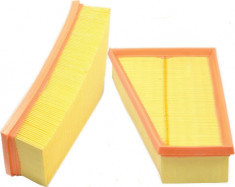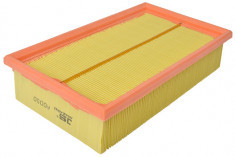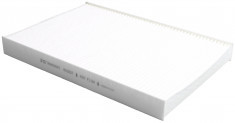-25%
Get Cabin Filter For Audi A4, A6, RS4, RS6
A cabin filter, also known as a cabin air filter or pollen filter, is a component of a vehicle’s heating, ventilation, and air conditioning (HVAC) system. Its primary function is to clean the air that enters the passenger compartment through the vehicle’s HVAC system, ensuring that occupants breathe in clean and filtered air.
Key Components:
- Filter Material:
- Cabin filters are typically made of a fibrous or synthetic material that is capable of trapping airborne particles such as dust, pollen, mold spores, allergens, and other pollutants. The material is designed to allow air to pass through while capturing and retaining contaminants.
- Frame:
- The filter material is enclosed within a sturdy frame, usually made of plastic or cardboard, which provides structural support and ensures proper fitting within the HVAC system.
Benefits:
- Improved Air Quality:
- Cabin filters effectively trap dust, pollen, allergens, pollutants, and other airborne particles from entering the vehicle’s cabin through the HVAC (Heating, Ventilation, and Air Conditioning) system. This helps maintain clean and healthy air inside the vehicle, reducing the risk of respiratory problems and allergic reactions for occupants.
- Reduced Odors and Foul Smells:
- Cabin filters can also capture odors, smoke, exhaust fumes, and other unpleasant smells, preventing them from circulating within the vehicle’s interior. This helps create a more pleasant and comfortable driving environment for occupants, especially during long journeys or in heavy traffic.
- Protection for HVAC Components:
- Cabin filters play a crucial role in protecting the HVAC system components, including the blower motor, evaporator core, and heater core, from contamination and debris. By filtering out dirt and debris, cabin filters help maintain the efficiency and longevity of these components, reducing the risk of costly repairs or replacements.
- Enhanced HVAC System Performance:
- A clean cabin filter ensures unrestricted airflow through the HVAC system, allowing it to operate more efficiently. Proper airflow improves the performance of the heating and cooling functions, ensuring consistent temperature control and comfort for occupants throughout the vehicle’s interior.
- Prevention of Window Fogging:
- Cabin filters help prevent window fogging by removing moisture and contaminants from the airflow entering the vehicle’s interior. This improves visibility for the driver and enhances safety, particularly in adverse weather conditions such as rain, snow, or high humidity.
- Extended Lifespan of Interior Components:
- By reducing the amount of dust and dirt circulating within the vehicle’s cabin, cabin filters help protect interior surfaces and components from premature wear and deterioration. This includes the dashboard, upholstery, carpets, and electronic devices, preserving their appearance and functionality over time.
- Reduction in HVAC Maintenance Costs:
- Regular replacement of cabin filters can help prevent clogging and airflow restrictions within the HVAC system, reducing the need for costly maintenance or repairs. Proper maintenance of cabin filters ensures optimal performance of the HVAC system, minimizing the risk of malfunctions or breakdowns.
Signs a cabin filter is worn out;
- Reduced Airflow:
- One of the most common signs of a worn-out cabin filter is reduced airflow from the vehicle’s HVAC system. If you notice that the airflow coming from the vents is weaker than usual, it may indicate a clogged or dirty cabin filter restricting the airflow.
- Poor Air Quality:
- An increase in dust, pollen, or unpleasant odors inside the vehicle’s cabin can indicate a compromised cabin filter. If you notice a musty or foul smell when the HVAC system is running, it could be a sign that the filter is no longer effectively trapping contaminants and needs replacement.
- Visible Dirt or Debris:
- Inspecting the cabin filter directly can reveal signs of wear or clogging. If the filter appears visibly dirty, clogged with debris, or discolored, it indicates that it has reached the end of its service life and should be replaced.
- HVAC System Odors:
- If you notice unusual odors, such as moldy or mildew-like smells, emanating from the HVAC system when it’s turned on, it may be a sign of a contaminated or mold-infested cabin filter. This can occur if the filter becomes wet or moisture-laden, providing a breeding ground for mold and bacteria.
- Increased Allergy Symptoms:
- A worn-out cabin filter may fail to effectively remove allergens such as pollen, dust, and mold spores from the air inside the vehicle. If occupants experience an increase in allergy symptoms, such as sneezing, coughing, or watery eyes, while driving, it could be due to a compromised cabin filter.
- HVAC System Malfunctions:
- A severely clogged or worn-out cabin filter can strain the HVAC system, leading to malfunctions or irregularities in its operation. This may include issues such as inconsistent temperature control, unusual noises from the HVAC system, or reduced cooling or heating performance.
- Excessive Noise from HVAC System:
- A cabin filter that is excessively clogged or deteriorated may cause the HVAC blower motor to work harder to push air through the restricted filter media. This can result in increased noise levels coming from the HVAC system, such as rattling, whining, or humming noises.
- Visible Damage to Filter Media:
- Inspecting the cabin filter for visible signs of damage, such as tears, holes, or collapsed filter media, can indicate that it is no longer effective at trapping contaminants. Any visible damage to the filter media compromises its filtration efficiency and necessitates replacement.
Follow us on Facebook for more parts.



